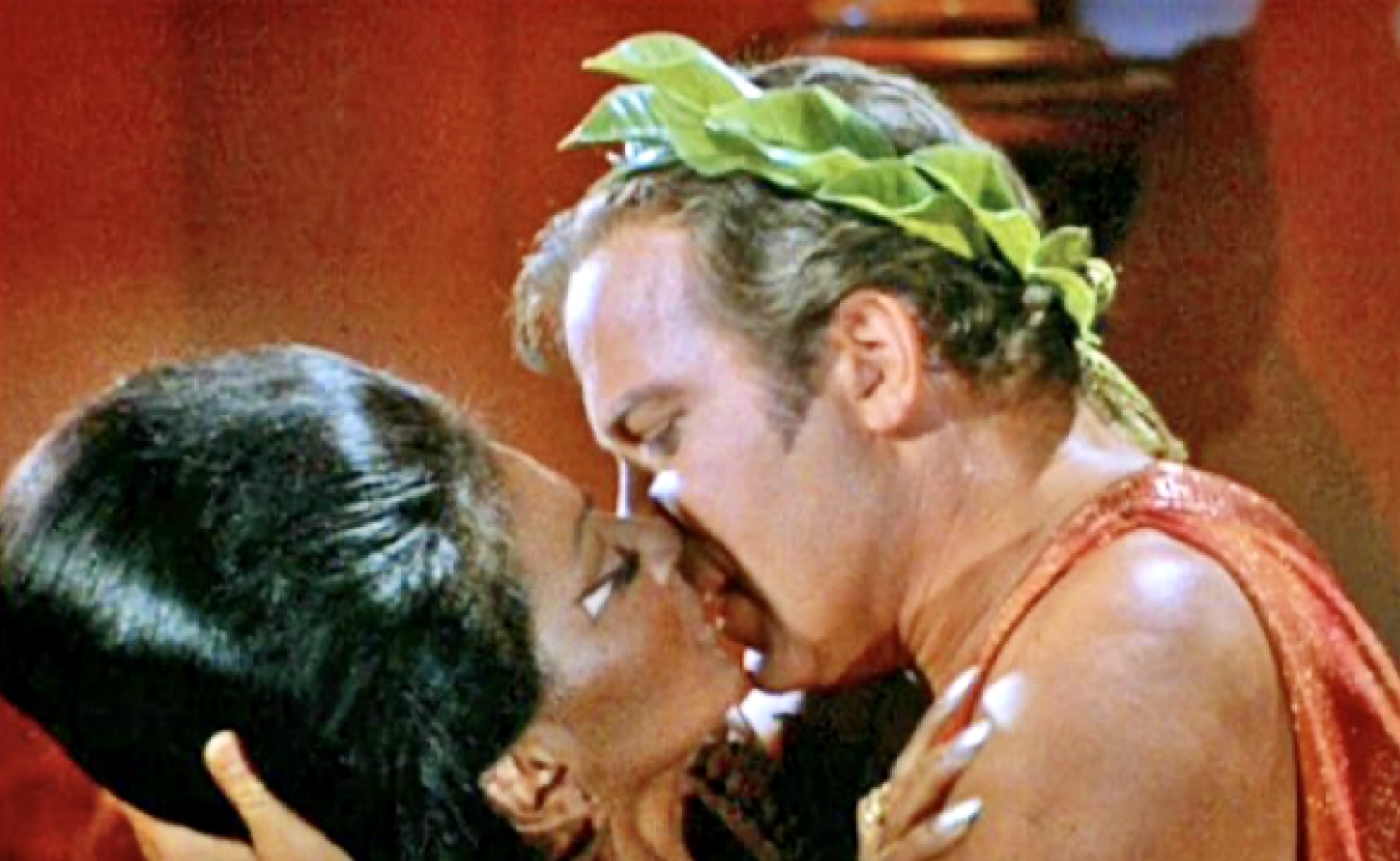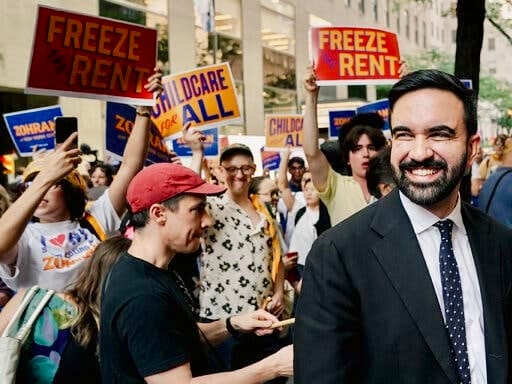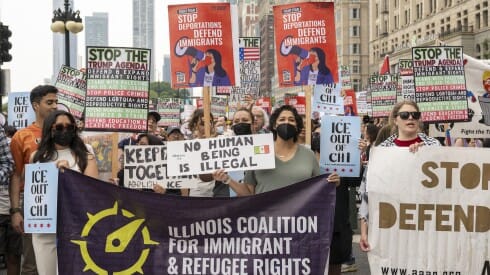My connection to that daring kiss
The past came tapping on my shoulder as I learned of the death of actress Nichelle Nichols, 89, best and forever known as Lt. Uhura, the Starship Enterprise’s leggy communications officer, the female sex object among the male cast. Her no-nonsense character was never portrayed in a sexist way, but the combination of her dancer’s legs and micromini uniform lit the lust fuse in a generation of men.

I have an anecdote that connects me with her, or more precisely, the first interracial kiss on network television. But before I get to that, reading her obits brought to light her romance with show creator and writer Gene Roddenberry, which I had not known, although I was a fan of the show.
It was he who let her name her character, Uhura, a variation of the Swahili word, uhuru, which means freedom or independence.
That was a ballsy move for the ‘60s in which racial strife reached new heights and American cities burned.
Her character and her name were never pointed out — no virtue signaling here — because in the 23rd century we had long ago buried the divisions of race. It was also ballsy in the cold war to have a fleet officer with the Russian name of Pavel Chekov.
The show took many chances, poked many cultural shibboleths in the eye.
Perhaps the greatest was the never-before network interracial kiss. It was Roddenberry again crashing through barriers, and it had NBC executives wetting their pants, fearing an uprising and defection by Southern affiliates.
At the time, I was the managing editor of a monthly magazIne called Project, published by Emory Washington, a Black West Philadelphia businessman, who used the publication to support the ideas of equal opportunity and affirmative action. One edition each year focused on Historically Black Universities and Colleges, 110 at the time, and it was the first time I had ever heard the HBUC term.
For me it was a part-time job, complementing my full-time job as an editor at Chilton Publications, then located at 56th and Chestnut. Project’s offices were at 40th and Walnut.
For the most part, Project covered business, most especially success stories of Fortune 500 firms in hiring Black employees — typically executives and engineers. Big American companies supplied most of the advertising revenue. I was the sole employee, the rest of the staff being Washington’s family.
And, no, it did not bother the publisher that his sole employee was white. To Emory, equal opportunity meant everyone has an equal opportunity, but the job would go to the best person who was willing to do the job for the salary offered.
When the Star Trek racial angle began to bubble, I suggested to Emory that we depart from our usual business format to jump on something in popular culture.
He had one question: Can you do it?
I said yes, and it was off to the races, with calls being put into NBC with requests for art and interviews, especially with Nichelle Nichols.
Ah, not so fast.
NBC provided color art of the show, but would grant no interview requests. For a change, the network did not want publicity. It was scared.
So I had to scrounge secondary sources and throw in a heavy dollop of Soc. 101, meaning trying to place the show on the horizon of the turbulent times in America. (NBC always had an “out” — that the kiss was not romantic in nature — God forbid — but the officers were being “forced” into this act by brain control of a powerful species.)
Both Star Trek star William Shatner and Nichols stretched their acting muscles to show they vainly fought to avoid the lip lock. What I just learned is that Nichols regarded Shatner as a camera hog. Avoiding that smooch might not have been acting.
Reader reaction to our departure from business to entertainment was overwhelmingly positive.
[Personal footnote: I’ve been having some bad leg days after my hip replacement surgery, and this was written through some pain.]



